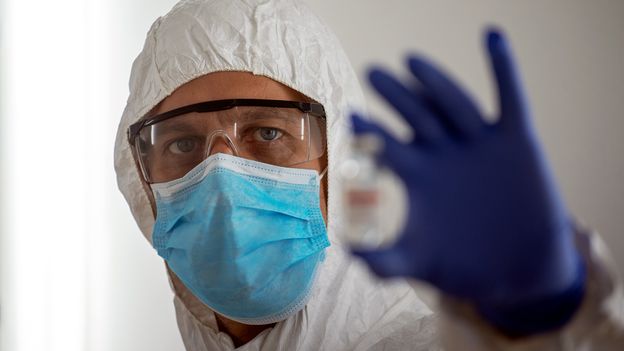So how effective is a single dose of each of the Covid-19 vaccines? At a time when the answer is more urgent than ever – especially as the British government has decided to delay the second dose of all currently approved Covid-19 vaccines from 3-4 weeks to 12, and Russia is trialling a single-dose regimen of its Sputnik V vaccine named "Sputnik-Light" – it's also surprisingly complicated. Here's what we know so far.
According to Pfizer data published in December 2020, the Pfizer-BioNTech vaccine is roughly 52% effective after the first dose. Out of 36,523 participants in the phase three trial – the final stage of testing where people either received two full doses, 21 days apart, or a placebo – who had no evidence of existing infection, 82 people in the placebo group and 39 in the vaccine group developed Covid-19 symptoms. ..
For the Oxford-AstraZeneca vaccine, things are a bit different. In a paper published in January, the authors explain that the vaccine offers protection of 64.1% after at least one standard dose. This compares to 70.4% if you've had two full doses, or – oddly – 90% in people who have had one half dose followed by one full dose. ..
According to a document the company submitted to the FDA, the Moderna vaccine can provide 80.2% protection after one dose, compared to 95.6% after the second (in people aged 18 to 65 – it's 86.4% in those over 65). As with the Pfizer vaccine, all participants in the phase three trial received two doses of the vaccine or a placebo within a single set time period – in this case, 28 days – so it's not yet known whether the immunity from a single vaccine would continue, or drop off after this stage. ...


Recent Comments